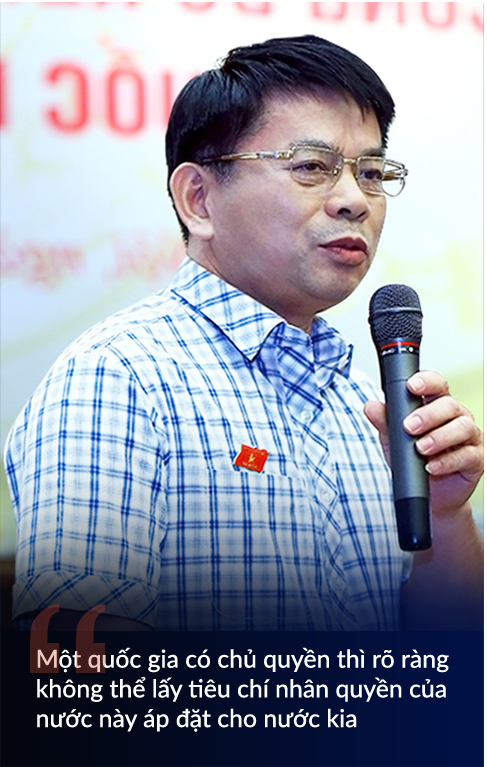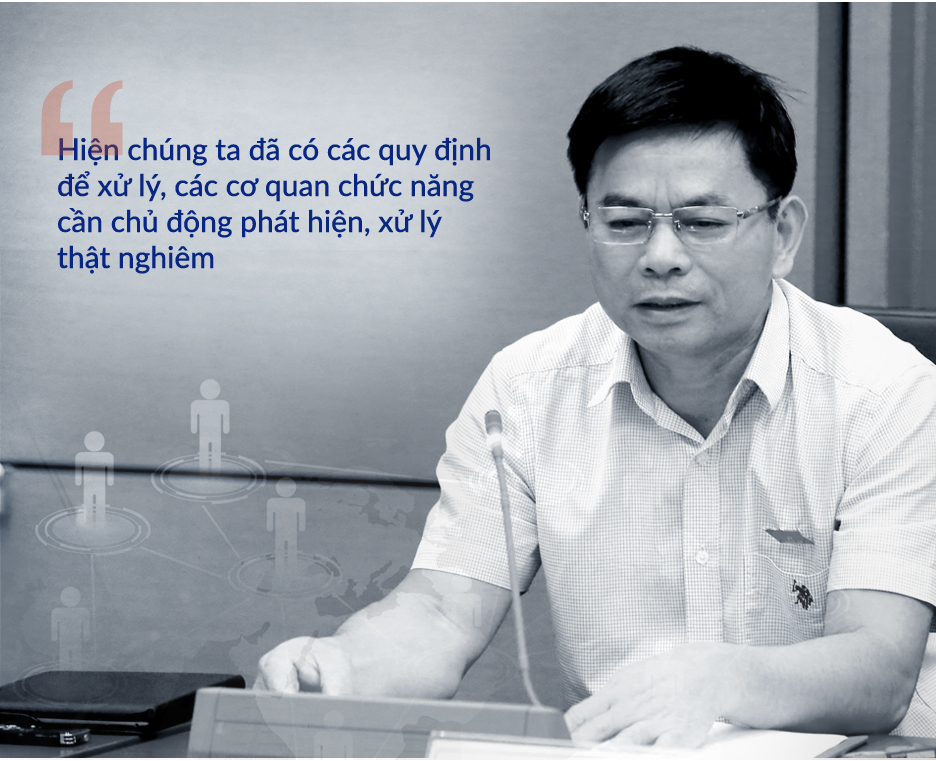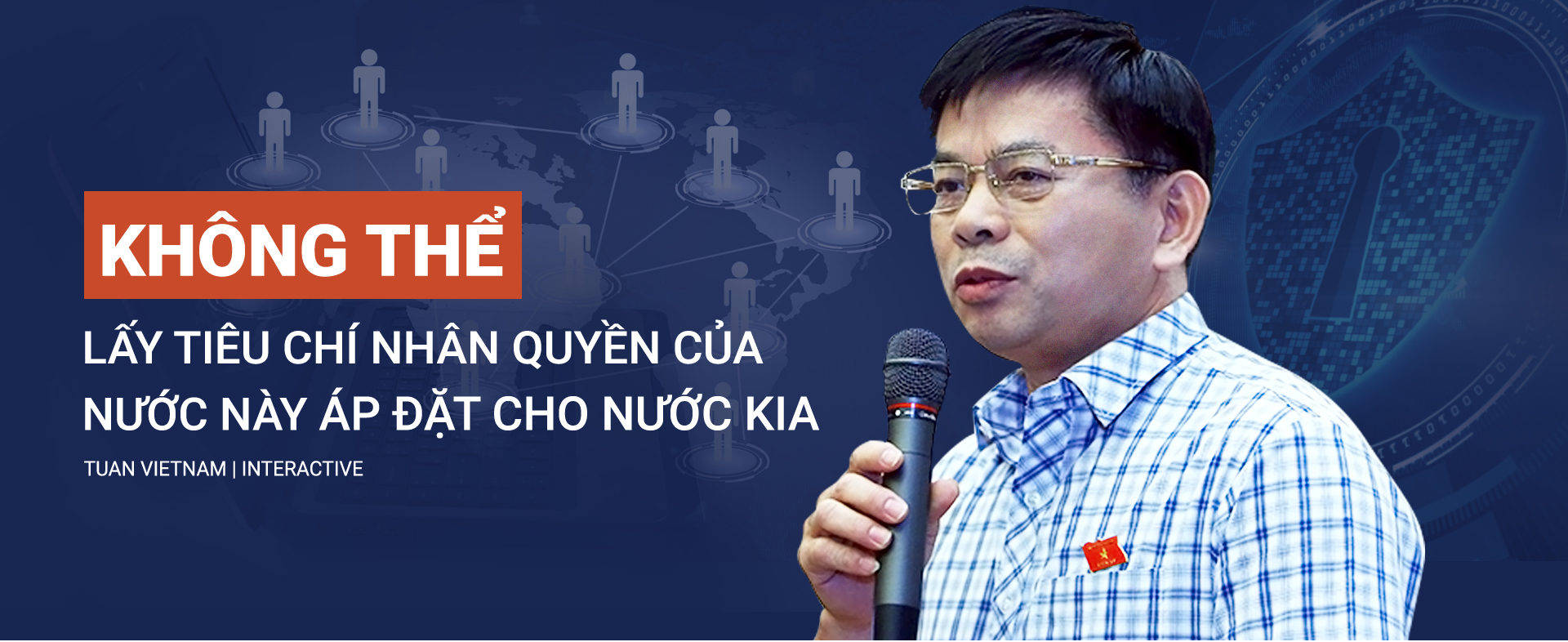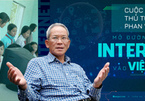Good medicine for a number of diseases
As a member actively participating in the assessment process of the Law on Cyber Security who said that "this law creates a legal mechanism to protect the legitimate rights and interests of organizations, individuals, domestic and foreign enterprises,” over a year after the law took effect, what can you say now about your comment?
 |
|
Major General Nguyen Thanh Hong, standing member of the National Assembly's National Defense and Security Committee
|
I see the most obvious effect of this law is to create a relatively comprehensive and complete legal basis to ensure security and safety in cyberspace.
Along with the Law on Information Security, the Law on Cyber Security gives us an additional legal basis too. Although it is not a "miracle", this is a very good "medicine" to cure some diseases.
Obviously, amid the Covid-19 epidemic, we have legal regulations to immediately handle acts related to taking advantage of the epidemic to deliver inaccurate, misleading or even misleading information to oppose the Party's policies.
A number of subjects took advantage of the epidemic to conduct activities related to the fields of national security, social order and safety, and crimes related to secrets of enterprises and individuals are all punished.
In your opinion, since the Law on Cyber Security was born, has cyberspace been cleaner than before?
I think so. According to the data I know, it is clear that the attacks on Vietnamese cyberspace have reduced compared to the time before the law took effect.
We have been proactive in ensuring network security to serve socio-economic development, ensure national defense and security. For example, amid the Covid-19 pandemic, activities of the State, the Government, the National Assembly have been performed online, instead of direct form. If we did not ensure network security well, we could not have a secure cyberspace in such a very special time.
Without the Law on Cyber Security, without sanctions against violations in cyberspace, what would you imagine social life like?
If there was no legal corridor, no regulations on prohibited acts, no clear definition of the rights, obligations and responsibilities of agencies, organizations and individuals, our cyberspace would have been very complicated and unpredictable.
Many people keep saying that cyberspace is virtual space, but it is actually not virtual. This is a new environment in a social state implementing the 4.0 technology revolution. If we do not have legal regulations nor the Law on Cyber Security, in terms of politics, defense and security, we will be very passive and confused.
Regarding the issue of sovereignty in cyberspace, the Law on Cyber Security determines sovereignty over cyberspace and sets out appropriate legal regulations to ensure national security, social order and safety, crime prevention, creating a favorable environment for socio-economic development.
Different political regimes raise different issues of human rights
Sanctions against cyber violations have been relatively high recently. This, on the one hand, is considered "a cure for some diseases" but on the other hand it also creates the feeling that social media users are being more controlled. Some even claim that it is "restricting freedom of speech " or "violation of human rights"?
 |
|
Major General Nguyen Thanh Hong, standing member of the National Assembly's National Defense and Security Committee |
In my opinion, sanctions against violations in the field of cybersecurity is very necessary, suitable and have a very positive effect in deterring and preventing infringements and violations.
Other countries also imposed sanctions, even very heavy fines and restricted the scope of activities of some technology firms such as Facebook and Google if violations are recorded.
Now in cyberspace, besides the positive side, there are many downsides. Some hostile forces, some individuals and organizations take advantage of the issue of "human rights" to claim that Vietnam’s imposing of sanctions against violations of some prohibited acts specified in the law as things that cannot be done. They claimed that the Law on Cyber Security limits freedom of expression, citizenship, and human rights violations, but I don't think so.
Do you mean that protection of the legitimate rights and interests of the majority of social media users is to protect human rights?
It must be affirmed that the Law on Cybersecurity was born to ensure human rights and citizenship according to the universal value and based on the characteristics of Vietnam.
In fact, the majority of users highly appreciate the provisions of the law, which create a healthy environment, ensuring the legitimate rights and interests of agencies, organizations and individuals on cyberspace.
Recently, some famous people, writers and artists have encountered problems such as impersonation or their private images and clips being illegally released and they had to ask for the prevention of the authorities.
In the process of building the Law on Cyber Security, many international organizations and technology groups initially reacted to some Vietnam’s regulations. But they then actively cooperated with us because the provisions of our laws also protect their rights and interests.
The police have recently investigated and arrested a number of subjects who took advantage of social networks to propagate against the state. Some outside forces said that it was a violation of human rights?
As I said, in addition to universality, each country has a different political regime, different socio-economic development conditions, different cultures and customs so they will have different views on human rights.
That's why there are international organizations to set common standards. On that principle, each country concretizes to suit its conditions and circumstances. It is impossible for a country, even a big one, to impose human rights issues on another country. That is the principle.
For some countries, there are areas that Vietnam prohibits and they think these are a human right. But imposing one country's standards on another is completely unreasonable. A sovereign state is obviously unable to apply the criteria of one country to the other.
Recently, the whole world has recognized the achievements in Vietnam's fight against Covid-19. We have sacrificed economic development to ensure human health. It is the protection of human rights, the national human rights that is recognized by many people at home and abroad.
Proactively detect and strictly punish violations
But how to distinguish between "human rights", "freedom of expression", and the use of the label "human rights" or freedom of expression to seek visitors and views in order to make profits or even oppose the state?
 |
|
Major General Nguyen Thanh Hong, standing member of the National Assembly's National Defense and Security Committee
|
I think that we must educate people and disseminate information about the law.
The second thing is to improve the efficiency of state management, in which there must be solutions to prevent and proactively handle violations in cyberspace.
In my opinion, state agencies on the one hand have to ensure citizenship rights to participate in cyberspace, and on the one hand, have to re-plan electronic information networks and social networking sites, and take measures to timely detect and prevent the false use of the cyberspace.
Currently, during the time Party congresses at all levels were organized, a lot of false and distorted information appeared on the Internet. In your opinion, is this considered the right to freedom of expression or human rights as some people say?
I think that's the excuse. Cyber security is not only an issue of Vietnam but of other countries in the world. Even the election in some countries was also interfered with through effects in cyberspace.
Obviously, these acts are conducted purposefully by some forces to cause disunity, skepticism in society, to oppose and destroy our country.
We now have regulations to deal with this and the authorities need to actively detect and strictly handle the violations.
In my opinion, it is necessary to invest adequately in this field to ensure that there is enough power to control cyberspace and handle violations.
In addition, media agencies and state agencies must proactively provide information in a timely, accurate manner and ensure publicity and transparency, and then surely false information will not work.
Thai Khang – Thu Hang

Freedom on the Internet must ensure human rights in cyberspace
Vietnam’s consistent view is not to prohibit the development of Internet, but its 'reverse side', which is contrary to cultural identity, national customs and traditions, and hinders social development.

Korean woman impressed with free Internet services in Vietnam
On Youtube, Kim Hye Ri, a former student at the Vietnamese studies faculty, Korea University of Foreign Languages said that she used to think South Korea was paradise for Internet and wifi, but she changed her thinking after a visit to Vietnam.

Meeting with PM Phan Van Khai opens way for Internet to enter Vietnam
The Internet was introduced to Vietnam quite late compared to other countries in Southeast Asia.